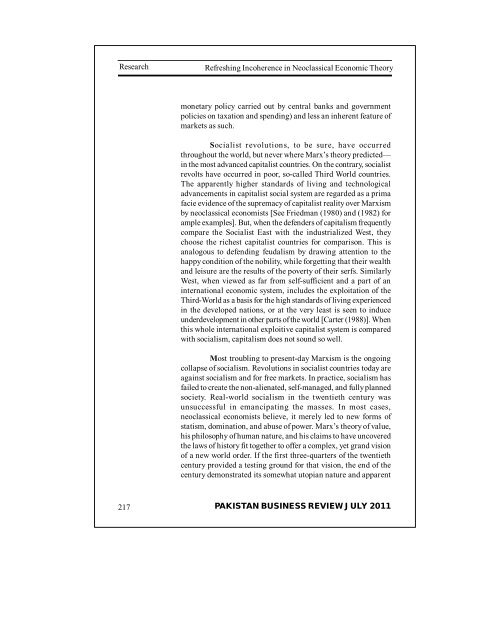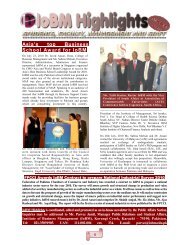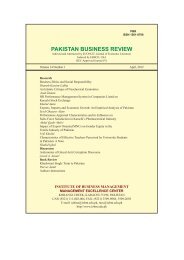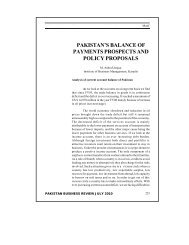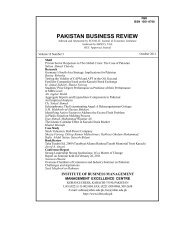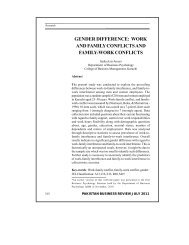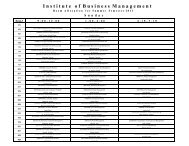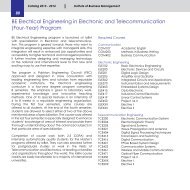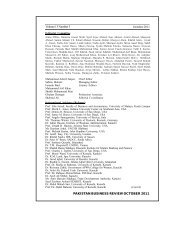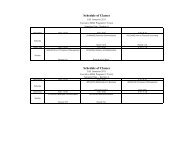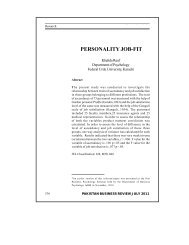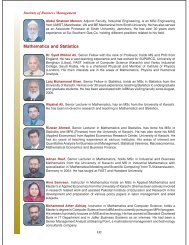PAKISTAN BUSINESS REVIEW - Institute of Business Management
PAKISTAN BUSINESS REVIEW - Institute of Business Management
PAKISTAN BUSINESS REVIEW - Institute of Business Management
Create successful ePaper yourself
Turn your PDF publications into a flip-book with our unique Google optimized e-Paper software.
Research<br />
Refreshing Incoherence in Neoclassical Economic Theory<br />
monetary policy carried out by central banks and government<br />
policies on taxation and spending) and less an inherent feature <strong>of</strong><br />
markets as such.<br />
Socialist revolutions, to be sure, have occurred<br />
throughout the world, but never where Marx’s theory predicted—<br />
in the most advanced capitalist countries. On the contrary, socialist<br />
revolts have occurred in poor, so-called Third World countries.<br />
The apparently higher standards <strong>of</strong> living and technological<br />
advancements in capitalist social system are regarded as a prima<br />
facie evidence <strong>of</strong> the supremacy <strong>of</strong> capitalist reality over Marxism<br />
by neoclassical economists [See Friedman (1980) and (1982) for<br />
ample examples]. But, when the defenders <strong>of</strong> capitalism frequently<br />
compare the Socialist East with the industrialized West, they<br />
choose the richest capitalist countries for comparison. This is<br />
analogous to defending feudalism by drawing attention to the<br />
happy condition <strong>of</strong> the nobility, while forgetting that their wealth<br />
and leisure are the results <strong>of</strong> the poverty <strong>of</strong> their serfs. Similarly<br />
West, when viewed as far from self-sufficient and a part <strong>of</strong> an<br />
international economic system, includes the exploitation <strong>of</strong> the<br />
Third-World as a basis for the high standards <strong>of</strong> living experienced<br />
in the developed nations, or at the very least is seen to induce<br />
underdevelopment in other parts <strong>of</strong> the world [Carter (1988)]. When<br />
this whole international exploitive capitalist system is compared<br />
with socialism, capitalism does not sound so well.<br />
Most troubling to present-day Marxism is the ongoing<br />
collapse <strong>of</strong> socialism. Revolutions in socialist countries today are<br />
against socialism and for free markets. In practice, socialism has<br />
failed to create the non-alienated, self-managed, and fully planned<br />
society. Real-world socialism in the twentieth century was<br />
unsuccessful in emancipating the masses. In most cases,<br />
neoclassical economists believe, it merely led to new forms <strong>of</strong><br />
statism, domination, and abuse <strong>of</strong> power. Marx’s theory <strong>of</strong> value,<br />
his philosophy <strong>of</strong> human nature, and his claims to have uncovered<br />
the laws <strong>of</strong> history fit together to <strong>of</strong>fer a complex, yet grand vision<br />
<strong>of</strong> a new world order. If the first three-quarters <strong>of</strong> the twentieth<br />
century provided a testing ground for that vision, the end <strong>of</strong> the<br />
century demonstrated its somewhat utopian nature and apparent<br />
217<br />
<strong>PAKISTAN</strong> <strong>BUSINESS</strong> <strong>REVIEW</strong> JULY 2011


